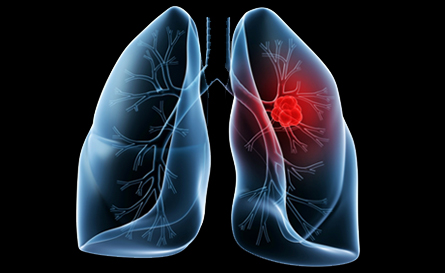Lung Cancer- what are the Causes and Treatment?
Cancer is formed when the cells do not grow and develop to mature cells and die as all normal cells do; these abnormal cells develop and become what is known as tumors. Because of the size of the tumors; in the case of lung cancer, they prevent the lung from getting enough oxygen to feed the blood for the sustenance of the body.
There are two types of tumors that develop and they are either benign or malignant. The benign tumor is easier to treat as it stays in position in the body where it develops; which makes for easy removal.
In the case of the malignant tumor, this is harder to treat as it does what is called metastasis; which means it spreads. This tumor spreads at such a rapid rate that it goes into the blood stream and into the lymphatic system. When cancer gets to the lymphatic system it is extremely difficult to treat.
Contents
What are the Causes of Lung Cancer?
Medical doctors are never really sure what causes all lung cancer, but the main cause of most lung cancer is cigarette smoking. It is believed that at least 80% of lung cancer deaths are attributed to cigarette smoke whether by directly smoking the cigarettes or secondhand smoke. Though not everyone that smokes will develop lung cancer, it is medically believed that the development of this disease may occur from genetic relations. Another reality of developing this disease is being exposed to environmental elements such as asbestos, or radon.
Symptoms of Lung Cancer
With lung cancer if detected early the chances of effective treatment is great. However in most cases the symptoms and diagnosis are generally late in coming. Early symptoms of lung cancer are not specific to all cases, so this does not mean if you have these symptoms you have the disease. Should you have the following symptoms it is extremely important to get medical help.
Symptoms associated with the disease are;
- Extreme tiredness
- Prolonged coughing
- Hoarseness
- Shortness of breath and wheezing
- Coughing up blood and rusty color phlegm
- Prolonged presence of pneumonia or bronchitis
In more severe cases symptoms of back pain, yellowing of the eyes if it spreads to the liver, seizures, headaches, weakness in the limbs, lumps on the body; if cancer has spread to the skin or lymph nodes
Treatment of Lung Cancer
Depending on the type of lung cancer, treatment varies. For SCLC this is small cell lung cancer; treatment is generally chemotherapy and radiation. Oncologists find this kind of treatment very responsive; unless the disease is diagnosed late, then the chance of surgery and or treatment is not very effective. For NSCLC; non-small cell lung cancer, the treatment of radiation and chemotherapy is not as responsive, so the opted treatment is general surgery.

